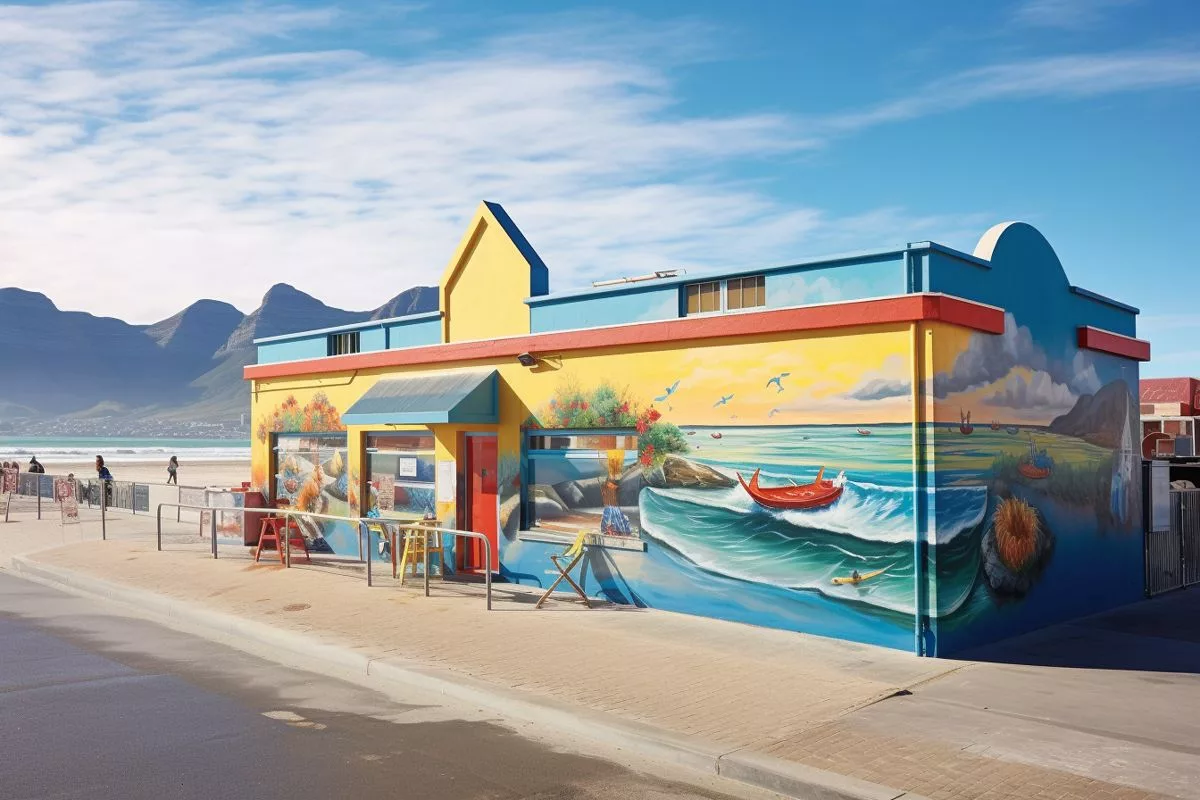Cape Town’s Shark Spotters Programme is a unique initiative that places observers on mountain ranges surrounding the city’s popular swimming beaches to scan the waters for sharks. The spotters use a flag system to convey any potential threats and ensure the safety of locals and visitors. The programme has recently received recognition for its contribution towards responsible tourism and community welfare, as well as its efforts in safeguarding the shark population and promoting public education about these marine predators.
What is the Shark Spotters Programme in Cape Town?
The Shark Spotters Programme is a unique initiative by the city of Cape Town that strategically places observers on mountain ranges surrounding the city’s popular swimming beaches to scan the waters for any signs of sharks, most notably the globally endangered Great White Shark. The spotters use a complex flag system to convey any potential threats to beach visitors. The programme not only ensures the safety of locals and visitors but also plays a crucial role in safeguarding the shark population and furthers public education about these marine predators.
A Unique Programme with Multiple Prizes
The Shark Spotters Programme, a unique initiative by the city of Cape Town, has received accolades for its remarkable contribution towards responsible tourism and beach holidays. The initiative has been honoured recently with the esteemed Gold Innovation Award at the African Responsible Tourism Awards. This award is given in recognition of organisations and enterprises in the tourism industry that have made significant strides in promoting responsible beach tourism.
This initiative of the city of Cape Town, known as the Shark Spotters Programme, is a creative endeavour that strategically places observers on the mountain ranges surrounding the city’s popular swimming beaches. These ‘spotters’ diligently scan the waters for any signs of sharks, most notably the globally endangered Great White Shark. They use a complex flag system to convey any potential threats to the beach visitors.
More Than Just Safety Measures
This well-structured programme doesn’t merely ensure the safety of locals and visitors, but it also plays a crucial role in safeguarding the shark population. It propagates a sense of community and furthers public education about these often-misconstrued marine predators.
The panel at the African Responsible Tourism Awards was especially taken by the programme’s multi-faceted methodology. The initiative doesn’t only uphold best practices in responsible tourism but also seamlessly integrates with local communities and has a confirmed history of preserving the beach surroundings. The programme’s competence in dispelling fear and fostering a peaceful co-existence between beach visitors and sharks received praise for being a trailblazing effort in the field.
Additionally, the Shark Spotters Programme offers numerous benefits to the local community beyond shark spotting. It creates job opportunities and encourages skill development among the local inhabitants. Furthermore, the programme enables beachgoers to acquire insightful information about sharks and their ecology.
Collaboration and Education
Sarah Waries, the Project Manager for Shark Spotters, expressed her joy at the programme’s acknowledgement. She stressed the joint effort that has made the programme a triumph. She said, “In collaboration with the City of Cape Town, we’ve built a comprehensive, socially and environmentally responsible initiative that safeguards beach tourism, the local economy, and the environment from the adverse effects of shark bite incidents.”
The Shark Spotters Information Centre, positioned at Muizenberg’s Surfer’s Corner, acts as a hub for the public to gather more information about the programme, shark sightings, and ongoing research. The centre operates seven days a week from 8 am to 6 pm, reflecting the city’s dedication to promoting responsible tourism and environmental guardianship.
A Model for Sustainability
In a world where conservation, responsible tourism, and community welfare are becoming increasingly interconnected, the Shark Spotters Programme emerges as a remarkable example of what can be achieved when these elements align harmoniously. It aptly demonstrates how innovative thinking, joint effort, and deep reverence for nature can cultivate a sustainable and mutually beneficial resolution for all involved parties.
For those keen on keeping abreast of the latest shark sightings and research, the Shark Spotters Programme maintains a dynamic online presence through their website and social media platforms on Twitter and Facebook. By following their updates, you can join the city of Cape Town in their continuous journey for responsible tourism and the preservation of its abundant marine biodiversity.
What is the purpose of the Shark Spotters Programme in Cape Town?
The Shark Spotters Programme is a unique initiative by the city of Cape Town that strategically places observers on mountain ranges surrounding the city’s popular swimming beaches to scan the waters for any signs of sharks. The programme ensures the safety of locals and visitors at the beach and plays a crucial role in safeguarding the shark population and promoting public education about these marine predators.
What recognition has the Shark Spotters Programme received?
The Shark Spotters Programme has received the esteemed Gold Innovation Award at the African Responsible Tourism Awards for its significant contribution towards responsible tourism and community welfare. The programme is recognised for its efforts in safeguarding the shark population and promoting public education about marine predators.
What is the flag system used by the Shark Spotters Programme?
The spotters use a complex flag system to convey any potential threats to beach visitors. The flag system consists of four flags: a white flag indicates that the water is clear, a red flag indicates that a shark has been spotted in the area, a black flag indicates that the spotting conditions are poor, and a green flag indicates that it is safe to enter the water.
What benefits does the Shark Spotters Programme offer to the local community?
The Shark Spotters Programme creates job opportunities and encourages skill development among the local inhabitants. It also offers insightful information about sharks and their ecology to beachgoers. The programme’s Information Centre at Muizenberg’s Surfer’s Corner acts as a hub for the public to gather more information about the programme, shark sightings, and ongoing research.
What is the significance of the Shark Spotters Programme’s recognition for responsible tourism?
The recognition of the Shark Spotters Programme for responsible tourism highlights the importance of promoting eco-friendly and socially responsible tourism practices that benefit the local community and the environment. The Shark Spotters Programme is a model for sustainability that showcases how innovative thinking, joint effort, and deep reverence for nature can cultivate a sustainable and mutually beneficial resolution for all involved parties.
How can one stay updated on the latest news about the Shark Spotters Programme?
The Shark Spotters Programme maintains a dynamic online presence through their website and social media platforms on Twitter and Facebook. By following their updates, individuals can stay updated on the latest shark sightings and research and join the city of Cape Town in their continuous journey for responsible tourism and the preservation of its abundant marine biodiversity.








